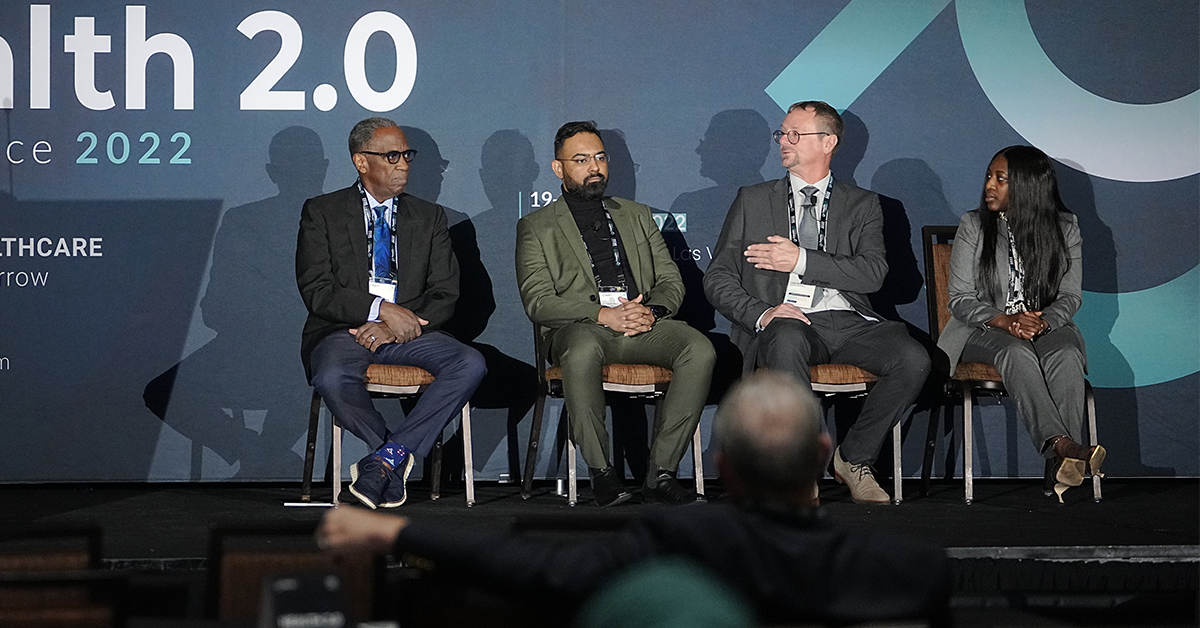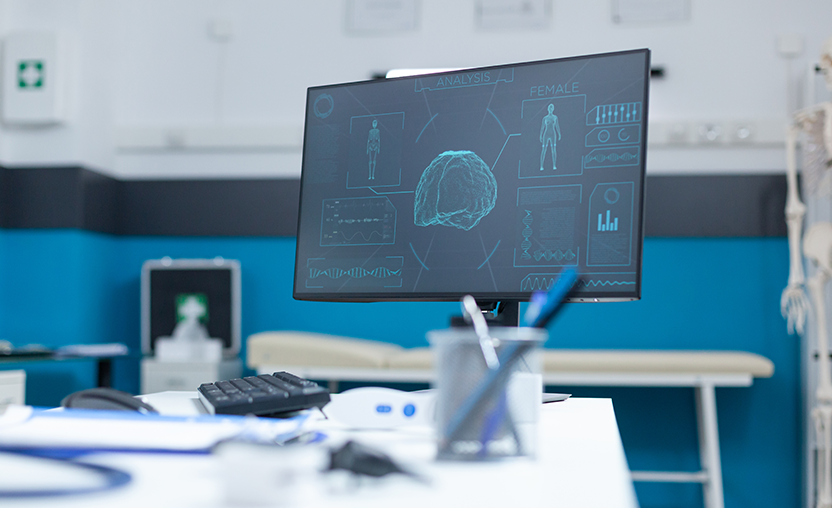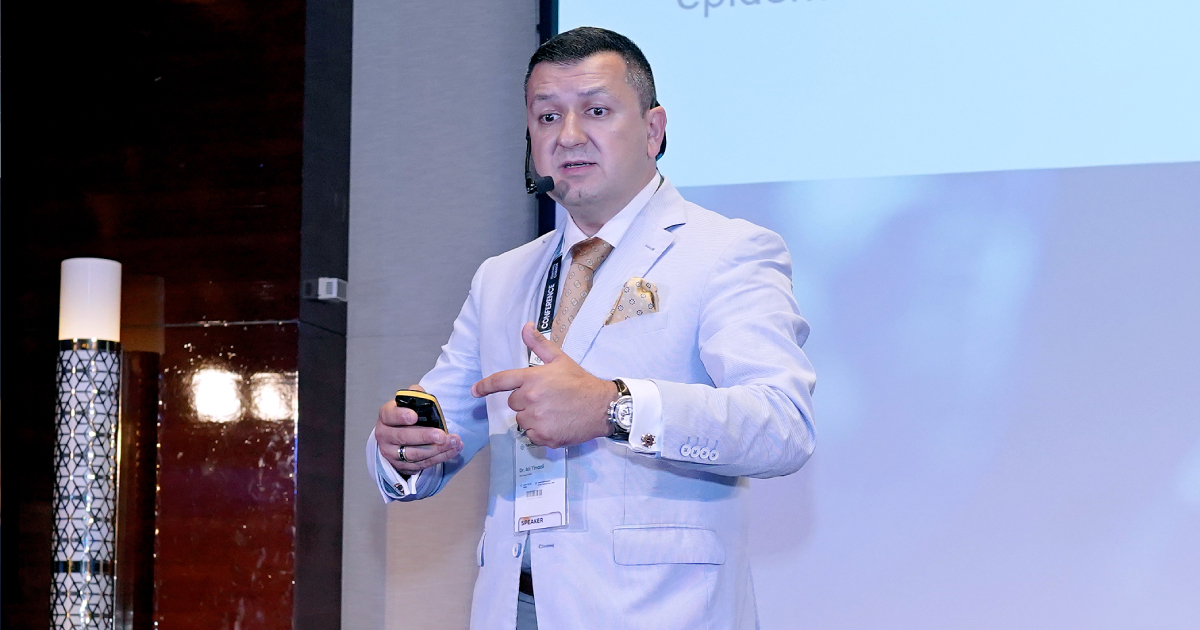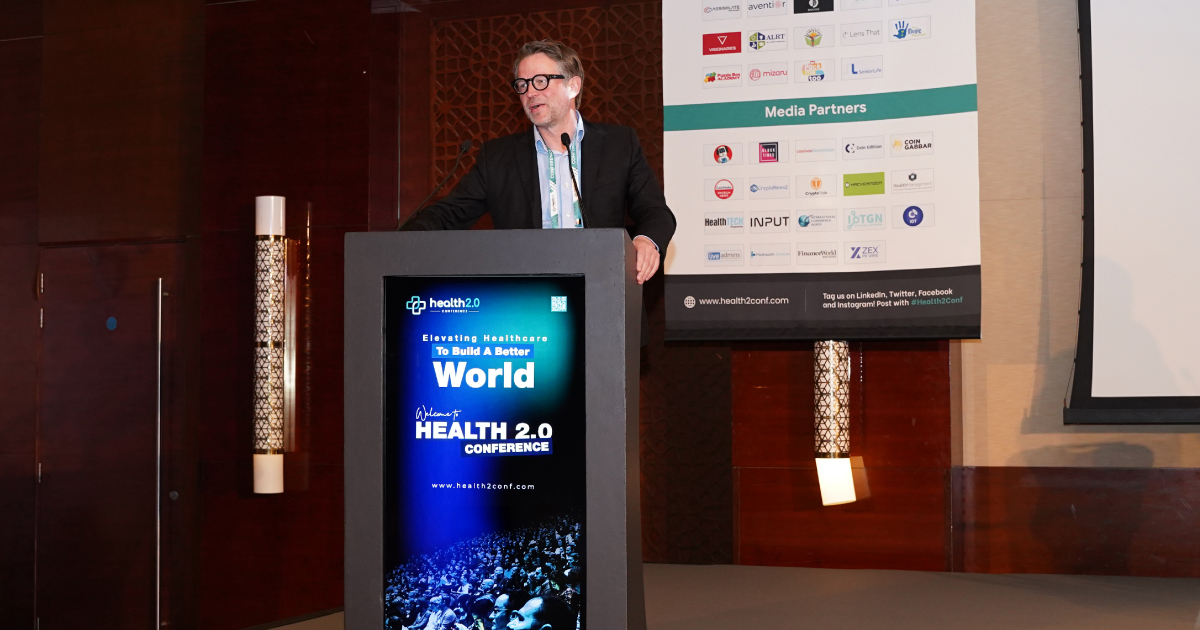Healthcare conferences and events around the world, notably, Health 2.0 Conference, have provided great insight into how the healthcare industry embraced the challenge of COVID-19. Impacting every major sector on a global scale, the pandemic presented overwhelming challenges in every possible manner.
Healthcare workers went through an overwhelming amount of mental and physical stress. With the industry suboptimally prepared for such a crisis, equipment shortages and lack of required structure proved overwhelming and exposed the vulnerabilities of the global healthcare system. However, seemingly in the latter half of the pandemic crisis, experts taking the stage at top healthcare conferences and events have provided insight into the lessons the health industry has learned dealing with COVID-19, notably -
Introduction Of Remote Healthcare & AI Technology
The need and use for telehealthcare and AI-powered decision-making tools skyrocketed once the pandemic hit. Observing the need for digital communication when transport was unavailable, telehealthcare was in demand globally. This prompted an accelerated implementation of remote appointments and treatment across the industry.
Patients can keep up to date on their preventive care appointments with the ease of staying at home, while the healthcare system has a new way to generate and increase billable hours. With fewer operating rooms and staff required, costs for institutions go down as well.
AI technology has vastly improved healthcare as well. The ability of automated tools to assist health workers in their decision-making and accuracy of diagnosis has been a welcome integration. Presenting a number of benefits, a few notable ones sure to be discussed at upcoming health conferences surrounding AI and healthcare are -
- Efficiency In Diagnosis - AI provides improved accuracy and efficiency when it comes to analyzing data to improve diagnosis.
- Improve Routine Tasks - AI can optimize routine tasks by automating the maintenance of documents and analysis-related duties.
- Cost Reduction Across The Healthcare System - Providing efficiency across the entire analysis spectrum, AI helps make diagnosis and analysis run at a fraction of the cost. Patients are treated faster and more effectively, reducing waiting time, admissions, and the requirement for additional equipment and staff.
- Offloads Stress - According to research on the stress physicians face, over half of the workers reported feeling less burden since the integration of AI technology. Automating operational and data analysis tasks has streamlined these procedures for physicians, significantly reducing their burden.
Improved Accessibility For Lab Tests
Industry experts at global healthcare events and conferences have previously talked about the importance of making lab tests accessible for patients all over. The constant need for rapid, self-test kits during the pandemic provided a gateway into furthering the concept of at-home diagnosis.
Patients, especially the ones living far away from diagnostic labs, can now self-test for specific conditions and ship out their test results for further treatment. This can be beneficial for patients in several ways, such as -
- Convenience -
- Perhaps the most significant benefit of having accessible testing for patients is the sheer ease and convenience of diagnosing. During a time of sickness, a person prioritizes a safe & comfortable environment, solved by the ability to now have at-home diagnosis services.
- For patients with chronic sickness or other cases when a person is immobile and bedridden, having an easier way of testing for seamless treatment is crucial.
- No Waiting Lines - Visiting a diagnostic lab, especially during rush hours, can be tasking, to say the least. With long waiting lines, patients can understandably experience frustration while already battling sickness. At-home diagnostics have streamlined this challenge by eliminating the need to participate in long waiting queues, unburdening both the patients and labs with a reduced workload.
- Prioritizes Test Requirements - With self-testing now in full force, patients can test themselves for only the necessary tests which align with their ongoing treatment. This eliminates the need to over plan a simple visit to the lab.

Focus On Population Health
The pandemic served as a wake-up call for healthcare systems to prioritize population health. Implementing rapid response measures allows them to build up experience in faster response systems and innovations.
The key difference in focusing on population health is improving better health outcomes and reducing costs in the healthcare sector. Real-time monitoring, another vital aspect of population health, can aid patients with chronic diseases through the use of monitoring technology.
Upcoming health conferences, such as Health 2.0 Conference, will be playing host to experts and innovation leaders in the industry, going in-depth into the benefits of focusing more on population health alongside the challenges of doing so.
Improvement In Surveillance And Analysis Of Data: Use Of Big Data & Ai
The rapid spread of COVID-19 raised critical questions regarding the surveillance of widespread infections. With the continued use of the public healthcare model, infection spreads were only based on positive case results acquired from clinical lab tests or survey tests to determine the spread of the disease.
To tackle this, the recent consolidation of clinical laboratories has emerged in a shift towards the concept of a centralized system of surveillance and analysis of diseases. Uniting lab testing facilities to focus on one or more urgent matters of disease analysis in the context of a situation similar to COVID-19 would be beneficial in strengthening the existing structure of testing and data analysis.
Implementing big data and AI into the mix has vastly improved the efficiency with which data is analyzed and processed. Using mobile-enabled technologies to monitor quarantined individuals and specific infected regions or areas is a game changer in early detection and controlled spread during a crisis. With the development of collaboration between global healthcare systems, data sharing can provide a much more efficient and accurate data analysis during such strenuous times.
Emotional Support For The Frontline
There was a global recognition for the unbelievable effort on the part of all the individual healthcare workers facing the seemingly never-ending challenges the pandemic brought. With hospitals full to the brim, the guilt of not being able to treat some patients, not being able to save some, and further breaking the news to their families as well as the perpetual stress of contracting the virus themselves, the frontline healthcare workers had reached their limit and then some.
Recognizing the emotional burden being incurred by the workers, healthcare systems globally implemented support systems such as -
- Recharge rooms
- Stress management & resilience training
- Easy to access mental health resources
Industry veterans engaged in critical discussions at various healthcare conferences and events have repeatedly urged the global healthcare systems to continue implementing various support systems for frontline workers.
Organizing And Effectively Using Supply Chains
Excess supplies have been an efficient way for healthcare institutions to cut costs for several years. In addition, consolidation of vendors to promote cost-cutting means supplies are available from a limited number of vendors.
Unfortunately for the healthcare system, these existing supply policies were disastrous when the pandemic hit. A global shortage in medication and major equipment, such as ventilators, was a major challenge when facing COVID-19.
The usage of rotational expiration medications gave health workers a lifeline during a time of crisis. Substitute medication, along with portable ventilators, allowed for alternative supply chains to be established. Observing the effectiveness of these alternative methods allows the healthcare systems to prioritize the development of diversifying supply chains to avoid panic and shortage during a global health crisis.
Be on the lookout for health conferences in 2023 in order to stay up to date on the latest innovations in supply chains and equipment manufacturing policies globally.

Attaining Global Trust Is Critical During Crisis
Before we actually faced the pandemic, it was rightfully assumed that a universal vaccine to cure and prevent high-fatality diseases would be immediately accepted. However, COVID-19 shed light upon how global acceptance of a government-proposed solution would usher in a number of challenges based on -
- Trust Level - The amount of trust citizens have in their government is crucial when accepting mass-based health proposals such as vaccines.
- Social Contracts - Social contracts refer to a unanimous acceptance amongst citizens to implement changes based upon the intensity of the situation society is facing as a whole. The reluctance of individuals to accept the vaccine, based upon personal beliefs and a freedom of choosing what they put into their bodies, created a discrepancy when it came to fighting against the pandemic in a unified effort.
- Return To Offices - Institutions slowly trying to implement a return to work from office culture have faced this very issue when it comes to trust. Employee trust needs to be solidified when regarding their concerns of personal well-being, safety, and security.
Conclusion
Undeniably, COVID-19 had a rippling effect on the global well-being of society. With unimaginable strains on the financial and health sector, it took a while before society could come to terms with the “ new normal.” However detrimental, there’s always an opportunity to reflect and implement lessons to perhaps handle a similar situation in a better fashion in the future. The healthcare industry, in light of how unprepared the infrastructure was during the pandemic, has decided to implement certain necessary changes for global sustenance in similar situations.
Upcoming healthcare conferences in 2023, notably Health 2.0 Conference , will be hosting critical panel discussions amongst industry leaders and innovators to raise awareness of the changes being implemented in healthcare systems globally.















